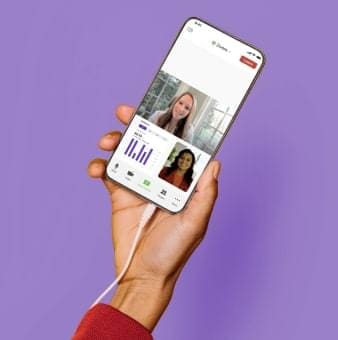Notice of Privacy Practices
NS412, LLC D/B/A WONDR HEALTH
HIPAA NOTICE
NOTICE OF PRIVACY PRACTICES
THIS NOTICE DESCRIBES HOW MEDICAL INFORMATION ABOUT YOU MAY BE USED AND DISCLOSED AND HOW YOU CAN GET ACCESS TO THIS INFORMATION. PLEASE REVIEW IT CAREFULLY.
We have prepared this Notice of Privacy Practices as required by the Health Insurance Portability & Accountability Act of 1996 (“HIPAA”). It describes how Wondr Health (“we” or “us”) may use and disclose your protected health information to carry out treatment, payment, or health care operations and for other purposes that are permitted or required by law. It also describes your rights to access and control your protected health information. We are required by law to maintain the privacy of your protected health information and provide you with notice of our legal duties and privacy practices with respect to protected health information. We are also required to notify you following a breach of your unsecured protected health information.
You acknowledge receipt of this notice by accepting the Terms & Conditions for using the services provided by Wondr Health (“Services”). This Notice applies solely to Services Wondr Health provides to you in its capacity as a Covered Entity (as defined by HIPAA). If you use the Services to receive medical care from a licensed third-party medical professional through Wondr Advanced, you will receive another Notice of Privacy Practices from such licensed third-party medical provider that will apply to the protected health information collected by them.
Uses and Disclosures of Your Protected Health Information
We may use and disclose your protected health information for the purpose of treatment and providing health care services to you. We may also use and disclose your protected health information as necessary to pay health care bills and to otherwise support our operations. Below you will find examples of the types of uses and disclosures of your protected health information that are permissible under HIPAA. Except as outlined below, we will not use or disclose your protected health information for any purpose other than treatment, payment or health care operations unless you have signed a form authorizing such use or disclosure. You have the right to revoke such authorization in writing, with such revocation being effective once we receive your revocation; however, such revocation shall not be effective to the extent that we have taken any action in reliance on the authorization.
- Uses and Disclosures for Treatment. We may use and disclose your protected health information as necessary for your treatment, which includes providing, coordinating, or managing health care and related services with one or more health care providers. An example of this would include case management.
- Uses and Disclosures for Payment. We may use and disclose your protected health information as necessary for payment purposes, which includes such activities as obtaining reimbursement for services, confirming coverage, billing or collection activities, and utilization review. An example of this would be submission of a claim for payment for the Wondr Health program.
- Uses and Disclosures for Health Care Operations. We may use and disclose your protected health information as necessary, and as permitted by law, for our health care operations, such as conducting quality assessment and improvement activities, auditing functions, cost management analysis, and customer service.
- Business Associates. Certain aspects and components of our services are performed through contracts with outside persons or organizations, such as billing, auditing, accreditation, outcomes data collection, legal services, etc. At times it may be necessary for us to provide your protected health information to one or more of these outside persons or organizations who assist us with our health care operations. In all cases, we require these associates to appropriately safeguard the privacy of your information and have in place the legally required safeguards to protect your health information.
- Individuals Involved In Your Care. We may from time to time disclose your protected health information to designated family, friends and others who are involved in your care or in payment of your care in order to facilitate that person’s involvement in caring for you or paying for your care. If you are unavailable, incapacitated, or facing an emergency medical situation and we determine that a limited disclosure may be in your best interest, we may share limited protected health information with such individuals without your approval. We may also disclose limited protected health information to a public or private entity that is authorized to assist in disaster relief efforts in order for that entity to locate a family member or other persons that may be involved in some aspect of caring for you.
- Emergencies. In an emergency treatment situation, we may use or disclose your protected health information in a context in which consent for the release of information has not already been given. If this happens, we will try to obtain your consent to the release of information as soon as reasonably practicable after the delivery of the treatment. If we have attempted to obtain your consent but are unable to obtain your consent, we may still use or disclose your protected health information in order to facilitate required treatment.
- Threat to Health or Safety. We may use and disclose your protected health information when necessary to prevent a serious threat to your health and safety or the health and safety of the public or another person but only to someone who may be able to help prevent that threat, as we determine in good faith.
- Public Health Activities. We may disclose your protected health information for the following public health activities: (1) to prevent or control disease, injury, or disability; (2) to report births and deaths; (3) to report the abuse or neglect of children, elders, and dependent adults; (4) to report reactions to medications or problems with products; (5) to notify people of recalls of products they may be using; and (6) to notify people who may have been exposed to a disease or may be at risk for contracting or spreading a disease or condition.
- Victims of Abuse, Neglect, or Domestic Violence. If we reasonably believe you are a victim of abuse, neglect, or domestic violence, we may disclose your protected health information to a governmental authority authorized by law to receive reports of such abuse, neglect, or domestic violence, including a social service or protective services agency.
- Health Oversight Activities. We may disclose your protected health information to a health oversight agency for activities authorized by law. One example of a health oversight agency is a state health insurance regulator or Medicaid program. These oversight activities include, for example, audits, investigations, inspections, licensure, and other activities necessary for the government to monitor the health care system, government programs, and compliance with civil rights laws.
- Lawsuits and Other Legal Disputes. We may disclose protected health information in the course of any judicial or administrative proceeding or investigation, in response to an order of a court or administrative tribunal (to the extent such disclosure is expressly authorized), in certain conditions in response to a subpoena, discovery request or other lawful process or request.
- Law Enforcement Officials. We may disclose protected health information, so long as applicable legal requirements are met, for law enforcement purposes. These law enforcement purposes include requests: (1) pursuant to legal processes or as otherwise required by law; (2) for limited information for identification and location purposes; (3) pertaining to potential victims of a crime; (4) relating to suspicion that a death has occurred as a result of criminal conduct; (5) in the event that a crime occurs at Wondr Health; or (6) in emergency circumstances to report a crime, the location of the crime, or victims or to report the identity, description or location of the person who committed the crime.
- Coroners, Funeral Directors, and Organ Donation. We may disclose protected health information to a coroner or medical examiner for identification purposes, determining cause of death or for the coroner or medical examiner to perform other duties authorized by law. We may also disclose protected health information to a funeral director, as authorized by law, in order to permit the funeral director to carry out his/her duties. Finally, protected health information may be used and disclosed for cadaveric organ, eye or tissue donation, banking or transplantation purposes.
- Specialized Government Functions. We may use and disclose your protected health information to units of the government with special functions, such as the U.S. military or the U.S. Department of State, under certain circumstances. We may use and disclose your protected health information to authorized federal officials for intelligence, counterintelligence, and other national security activities authorized by law. We may use and disclose your protected health information to authorized federal officials so they may provide protection to the President, to other authorized persons, or to foreign heads of state, or to conduct special investigations.
- Workers’ Compensation. We may disclose your protected health information as authorized by and to the extent necessary to comply with state laws relating to workers’ compensation or other similar programs.
- Research. In certain circumstances, we may use or disclose your protected health information for research purposes. In all cases where your specific authorization is not obtained, your privacy will be protected by strict confidentiality requirements applied by an Institutional Review Board or Privacy Board which oversees the research or by representations of the researchers that limit their use and disclosure of your information.
- Health Related Products and Services. We may use and disclose your protected health information to tell you about our health-related products or services that may be of interest to you.
- Information Not Personally Identifiable. We may use and disclose your protected health information in ways that do not personally reveal your identity. We may create and distribute deidentified health information by removing all references to individually identifiable information.
- As Required by Law. We may use and disclose your protected health information when required to do so by any other law not already referred to in the preceding categories. For example, the Secretary of the Department of Health and Human Services may review our compliance efforts, which may include access to your protected health information.
Any other uses and disclosures will be made only with your written authorization. Specifically:
- We may not use or disclose your genetic information for underwriting purposes.
- We may not transfer or sell your protected health information without your express written authorization, unless the transfer is part of a merger, transfer, or sale of the Wondr Health program to a new owner.
- We may not use your protected health information for purposes that are considered marketing under the HIPAA privacy rules. For example, we will not accept any payments from other organizations or individuals in exchange for making communications to you about treatments, therapies, health care providers, settings of care, case management, care coordination, products or services unless you have given us your authorization to do so or the communication is permitted by law.
Minimum Necessary
To the extent required by law, when using or disclosing your protected health information or when requesting your protected health information from another covered entity or business associate, we will make reasonable efforts not to use, disclose, or request more than the minimum amount of protected health information necessary to accomplish the intended purpose of the use, disclosure, or request, taking into consideration practical and technological limitations.
Your Rights
When it comes to your protected health information, you have certain rights. This section explains your rights and some of our responsibilities. You have the following rights with respect to your protected health information, which you can exercise by presenting a written request to the Privacy Officer:
- Get an electronic or paper copy of your protected health information. You have the right to inspect and copy your protected health information, either electronically or on paper, as long as we maintain the protected health information. You may obtain this copy within 30 days, or within 60 days if we are unable to provide the information within 30 days and notify you of the delay within the first 30 days. We may charge a reasonable, cost-based fee. However, you may not inspect or copy the following records: psychotherapy notes, information compiled in reasonable anticipation of, or use in, a civil, criminal, or administrative action or proceeding, and protected health information that is subject to law that prohibits access to protected health information.
- Amend your protected health information. You have the right to have us amend your protected health information. This means you may request an amendment of protected health information about you for as long as we maintain the information. In certain cases, we may deny your request for an amendment. If your request is denied, you will receive an explanation of the denial within 60 days. If we deny your request for amendment, you have the right to file a statement of disagreement with us and we may prepare a rebuttal to your statement and will provide you with a copy of any such rebuttal.
- Request confidential communications. You have the right to reasonable requests to receive confidential communications of protected health information from us by alternative means or at alternative locations. In other words, you have the right to ask us to contact you in a specific way or to send mail to a different address.
- Request a restriction on use or disclosure of your protected health information. You have the right to request restrictions on certain uses and disclosures of protected health information, including those related to disclosures to family members, other relatives, close personal friends, or any other person identified by you. Your request must state the specific restriction requested and to whom you want the restriction to apply. We are not, however, required to agree to a requested restriction, unless the request is made to restrict disclosure to an insurer or health plan for purposes of carrying out payment or health care operations (and is not for purposes of carrying out treatment), and the protected health information pertains solely to a health care item or service for which you have paid out of pocket in full. If we do agree to a restriction, we must abide by it unless you agree in writing to remove it.
- Get a list of those with whom we have shared information. You have the right to receive an accounting of certain non-routine disclosures of protected health information. That right does not apply to all disclosures; in particular, it does not apply disclosures for purposes necessary to carry out treatment, payment or health care operations as described in this Notice of Privacy Practices. It also excludes disclosures we have made to you, for a facility directory, to family members or friends involved in your care, or for notification purposes. The right to receive this information is subject to additional exceptions, restrictions and limitations.
- Opt out. You have the right to opt out of any communications that may be construed as fundraising or marketing.
- Get a copy of this privacy notice. You can ask for a paper copy of this notice at any time, even if you have agreed to receive the notice electronically. We will provide you with a paper copy.
- Choose someone to act for you. If you have given someone medical power of attorney or if someone is your legal guardian, that person can exercise your rights and make choices about your protected health information. We will make sure the person has this authority and can act for you before we take any action.
- File a complaint. You may complain to us or to the Secretary of Health and Human Services if you believe your privacy rights have been violated by us. You may file a complaint by notifying our Privacy Officer of your complaint. We will not retaliate against you for the filing of such a complaint.
This Notice is effective as of July 5,2023 and we are required to abide by the terms of the Notice of Privacy Practices currently in effect. We reserve the right to change the terms of our Notice of Privacy Practices and to make the new notice provisions effective for all protected health information that we maintain. There may be instances where state law that relates to the privacy of your protected health information is more stringent than a standard or requirement under HIPAA. In that case, we will adhere to the more restrictive state law.
Please contact the Privacy Officer for more information:
Privacy Officer Wondr Health, Inc.
12790 Merit Drive, Suite 700
Dallas, Texas 75251
privacy@wondrhealth.com
1-855-999-7549







